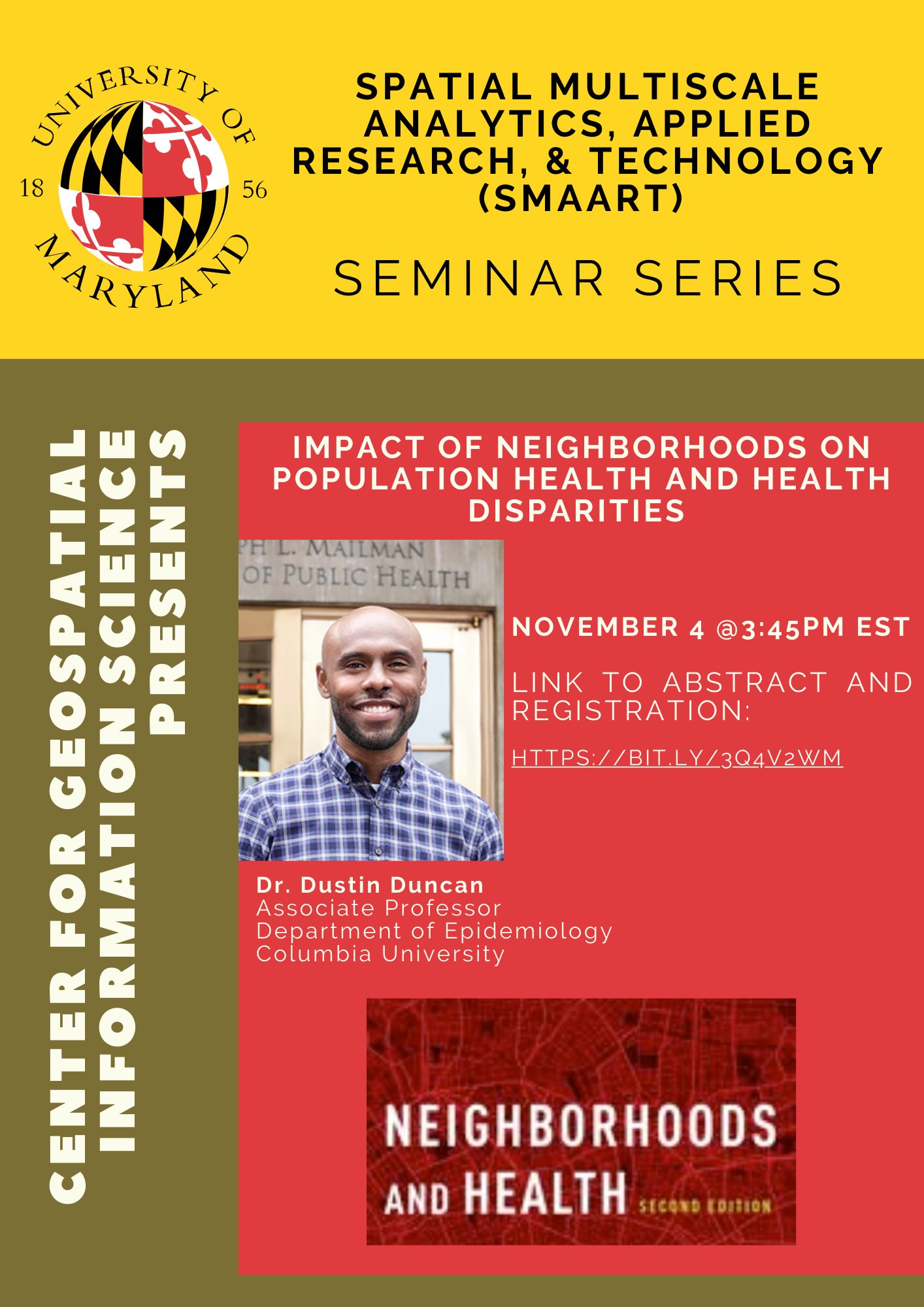SMAART Seminar Series Invites Dr. Dustin Duncan
11/3/2021
Dr. Dustin Duncan will give an invited talk on "Impact of Neighborhoods on Population Health and Health Disparities". He is an Associate Professor in the Department of Epidemiology at Columbia University.
Event Date and Time: Thursday, 11/4, 2021 @ 3:45PM EST
Location: Zoom Webinar
Abstract
The field of neighborhoods and health (sometimes referred to as spatial epidemiology) has grown exponentially in the last twenty years, especially since the publication of the first edition of Neighborhoods and Health edited by Ichiro Kawachi and Lisa Berkman in 2003. There is a large literature on the influence of neighborhoods on health to date. Many reviews and technical reports of accumulated neighborhoods and health research have been conducted. For example, in 2017, Bauermeister and colleagues conducted a review on multi-level studies of neighborhoods and HIV prevention and care outcomes among sexual minority men who have sex with men. However, relatively few neighborhood studies have focused on sexual minority populations. Neighborhood studies that have taken an intersectional approach, e.g., by focusing on sexual identity as well as race/ethnicity simultaneously are even more scarce. This talk aims to:
- provide a historical overview of neighborhoods and health research,\
- examine recent directions in neighborhoods and health research, and\
- touch on methodological areas including the issue of spatial misclassification.
The talk will overview applications of geospatial methods to study neighborhoods in population health and health disparities research with examples from one of Dr. Duncan’s prospective cohort studies, which use novel geospatial methods. The N2 (Neighborhoods and Networks) Cohort Study is a cohort study including 600 HIV-negative and HIV-positive Black gay, bisexual and other sexual minority men in Chicago IL, Jackson MS, and New Orleans and Baton Rouge LA (Grant Numbers: R01MH112406 and U01PS005122). The cohort focuses on advanced global positioning systems (GPS) methods to understand how activity space neighborhoods (defined as the local areas within which people move during their daily activities) influence HIV prevention and care outcomes.
Please Register Here: https://bit.ly/3q4V2Wm
